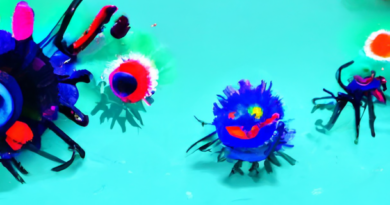COVID vaccines: time to confront anti-vax aggression
Nearly one billion COVID-19 vaccine doses have been delivered in less than six months, but anti-vaccine disinformation and targeted attacks on scientists are undermining progress. These threats must be confronted directly, and the authority and expertise of the health community alone aren’t enough to do this.
Even before the pandemic, I had a front-row seat to all of this. I have co-led efforts to develop vaccines in programmes, including a COVID-19 vaccine currently being tested in India. I also have an adult daughter with autism; my 2018 book, Vaccines Did Not Cause Rachel’s Autism, became a dog whistle for anti-vaccine activists.
The World Health Organization recognized vaccine hesitancy as a top threat to global health before the pandemic. As COVID-19 vaccines moved through development, the public-health communities anticipated considerable vaccine hesitancy. Teams of experts, including me, began meeting regularly online to discuss how best to amplify evidence-based messages, deliver public-service announcements and address concerns around COVID-19 immunization.
I experienced sinking feelings during our Zoom calls. Although certainly worthwhile, I knew that messaging alone would be inadequate. We’d already seen this inadequacy in our efforts to prevent measles from returning to the United States and Europe in 2019, and to bolster vaccination rates for human papillomavirus to prevent cervical and other cancers. With COVID-19, our pro-vaccine messages would be drops in a vast sea of misinformation, much of it poured in deliberately by anti-vaccine forces.
I have a long-standing disagreement with many of my US public-health colleagues. I admire their commitment to disease prevention, but when I ask for a more direct way to counter anti-vaccine aggression, I’m told, “that’s not our approach; confrontation gives them a platform and oxygen.” In my opinion, this attitude reflects a time when we had dial-up modems. Today, the anti-vaccine empire has hundreds of websites and perhaps 58 million followers on social media. The bad guys are winning, in part because health agencies either underestimate or deny the reach of anti-science forces, and are ill-equipped to counter it.
Investigations by the US State Department and the UK Foreign Office have described how Russian intelligence organizations seek to discredit Western COVID-19 vaccines. One campaign implies that it could turn people into monkeys. This builds on a longer, well-documented history of Russia-sponsored disinformation, presumably to destabilize the United States and other democratic countries. The administration of US President Joe Biden has warned Russian media groups to halt their anti-vaccine aggression, and announced sanctions tied to disinformation and other behaviour, but we need much more.
The United States hosts the world’s largest and best-organized anti-vaccine groups. According to the London-based Center for Countering Digital Hate, these are influential groups, not a spontaneous grass-roots movement. Many far-right extremist groups that spread false information about last year’s US presidential election are doing the same about vaccines. Anti-vaccine groups also target Black communities; an anti-vaccine documentary released in March vilifies COVID-19 vaccine testing among African Americans, calling it “medical racism”.
Global anti-vaccine messaging around the adenovirus vaccines means that more people will die and the pandemic will be prolonged. Extremely rare but life-threatening blood clots caused the United States to pause roll-out of the Johnson & Johnson vaccine, and many European nations have stopped or restricted use of the Oxford–AstraZeneca vaccine for similar reasons. However, those regions have other vaccine options, which is not the case for many countries. In March, Cameroon and the Democratic Republic of the Congo halted use of the Oxford–AstraZeneca vaccine, and the African Union has stopped procurement.
Many people in Africa are tapping into anti-vaccine messaging. A rumour-tracking program from the analytics company Novetta in McLean, Virginia, finds that Russia specifically targets African countries to discredit Western vaccines in favour of its own Sputnik V. US-based anti-vaccine groups invoke colonialism and eugenics. Now, tens of thousands of vaccine doses are going unused. Anti-vaccine disinformation has turned reasonable questions and concerns over rare side effects into conspiracy worries, exaggerated fears, and outrage at being treated like ‘guinea pigs’.
Accurate, targeted counter-messaging from the global health community is important but insufficient, as is public pressure on social-media companies. The United Nations and the highest levels of governments must take direct, even confrontational, approaches with Russia, and move to dismantle anti-vaccine groups in the United States.
Efforts must expand into the realm of cyber security, law enforcement, public education and international relations. A high-level inter-agency task force reporting to the UN secretary-general could assess the full impact of anti-vaccine aggression, and propose tough, balanced measures. The task force should include experts who have tackled complex global threats such as terrorism, cyber attacks and nuclear armament, because anti-science is now approaching similar levels of peril. It is becoming increasingly clear that advancing immunization requires a counteroffensive.
Nature 592, 661 (2021)



